Hezbollah said late on August 3 (local time) it had launched dozens of missiles at Israel amid heightened tensions in the Middle East following two assassinations targeting the Lebanon-based force's senior military commander and a top Hamas official visiting Iran.
Israel accepted responsibility for the assassination of senior Hezbollah military commander Fuad Shukr, but neither admitted nor denied the assassination of Hamas political leader Ismail Haniyeh.
Hezbollah fires rockets into Israel
In the latest development that has sent the Middle East into a frenzy, Hezbollah fired about 50 rockets from Lebanon toward the upper Galilee overnight. Videos showed the Iron Dome defense system being activated in Israeli territory, and many of the shells were intercepted.
However, in a statement claiming responsibility for the attack, Hezbollah made it clear that the action was not a retaliation for the assassination of their senior commander. It was a response to Israeli airstrikes on two villages in southern Lebanon, Kafr Kila and Deir Siryan.
The Islamic Resistance movement has put the new Israeli settlement of Beit Hillel on its attack schedule and for the first time bombarded it with dozens of Katyusha rockets.

Rockets fired by Hezbollah towards Israel are seen in the night sky on August 3, 2024, many of which were intercepted by Iron Dome. Photo: India Today
According to the Times of Israel, local Israeli authorities said some impact was recorded near Beit Hillel. Ynet News reported that a fire broke out in the area.
The escalating tensions have prompted Britain, the United States and Australia to order their citizens to evacuate Lebanon. Canada has warned its citizens to avoid all travel to Israel, saying the armed conflict in the region poses a security risk.
Meanwhile, Iran and its allies are weighing their response to the assassination of Hamas political leader Ismail Haniyeh while he was staying in the capital Tehran earlier this week.
The assassination of Mr. Haniyeh is one of a series of assassinations of senior Hamas figures as the resurgence of conflict in the Gaza Strip stretches back nearly 11 months, and it has raised concerns that the war in Gaza risks turning into a wider war in the Middle East.
Hamas said it had begun a "wide consultation process" to choose a new leader three days after the assassination of Mr Haniyeh, the Palestinian Islamist movement's international diplomacy chief.
US General to the Middle East
The United States and international partners including France, Britain, Italy and Egypt resumed diplomatic contacts on August 3 to seek ways to prevent further escalation in an often volatile region.
Amid fears of a regional war, US President Joe Biden has expressed hope that Iran will "step back" from its threats to retaliate against Israel, but there is no certainty. Asked if he thought it was likely the Iranians would back down, Biden replied: "I hope so. I don't know."
In another development, Axios cited sources saying that the Commander of the Central Command (CENTCOM), General Michael E. Kurilla, arrived in the Middle East region on August 3.

Lieutenant General Michael E. Kurilla, Commander of the US Central Command (CENTCOM). Photo: JPost
According to Axios, the head of CENTCOM will visit several Gulf states, Jordan and Israel, and try to mobilize international and regional allies to work together to repel a potential attack from Iran.
Jordan is expected to be a highlight of General Kurilla's trip, as it played a key role in intercepting an Iranian drone flying towards Israel during the April 13 attack, according to sources.
Axios pointed out that the US and Israel do not know whether Iran and Hezbollah will decide to jointly carry out a retaliatory operation, but three US and Israeli officials said they expect Iran to attack Israel as early as August 5.
Earlier, the Pentagon announced on August 2 that it would send additional forces to the Middle East to protect Israel, including cruisers and destroyers capable of ballistic missile defense. The US is also preparing to deploy additional land-based missile defense systems.
Violence continues in Gaza and the West Bank
Before Hezbollah fired rockets at Israel, on August 3, an Israeli airstrike on a school sheltering displaced people in Gaza City killed at least 15 people, according to local health officials.
The air strike on the Mediterranean coastal strip came just hours after two air strikes on the West Bank killed nine militants, including a local Hamas commander, Hamas said.
The Israeli military (IDF) said the first of two airstrikes in the West Bank hit a vehicle in a town near the city of Tulkarm, targeting a group of militants it said were on the verge of carrying out an attack.
A Hamas statement said one of those killed was the commander of the Tulkarm brigade, while its ally Islamic Jihad said four other men killed in the airstrike were its fighters.
Hours later, a second airstrike in the area targeted another group of militants who the IDF said had opened fire on them.
The Palestinian news agency WAFA said four people were killed in that airstrike, and Hamas said all nine people killed in two Israeli attacks on the West Bank were militants.
At least 39,550 Palestinians have been killed in Israel's military campaign in Gaza, according to Gaza health officials.
The renewed cycle of violence in the Gaza Strip was triggered by a Hamas attack on southern Israel on October 7 last year, which left 1,200 people dead and 250 hostages, according to Israeli figures.
Minh Duc (According to India Today, Sky News, Arab News, TASS)
Source: https://www.nguoiduatin.vn/trung-dong-soi-suc-khi-hezbollah-na-rocket-vao-israel-ong-biden-hy-vong-mot-dieu-204240804123058513.htm


![[Photo] Students of Binh Minh Primary School enjoy the full moon festival, receiving the joys of childhood](https://vphoto.vietnam.vn/thumb/1200x675/vietnam/resource/IMAGE/2025/10/3/8cf8abef22fe4471be400a818912cb85)




![[Photo] Prime Minister Pham Minh Chinh chairs meeting to deploy overcoming consequences of storm No. 10](https://vphoto.vietnam.vn/thumb/1200x675/vietnam/resource/IMAGE/2025/10/3/544f420dcc844463898fcbef46247d16)







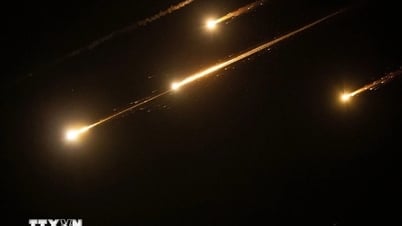





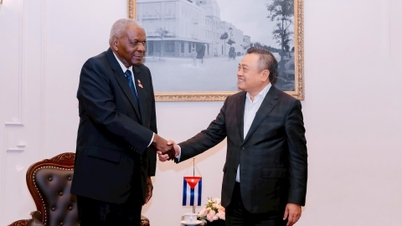
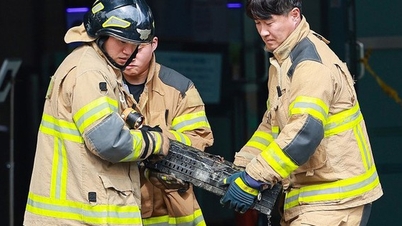

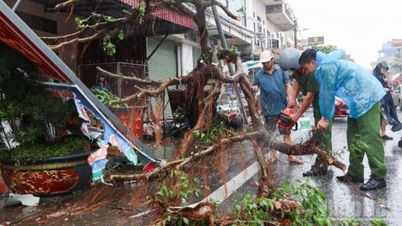





























































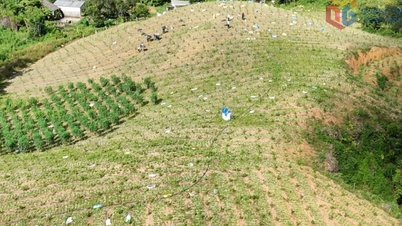

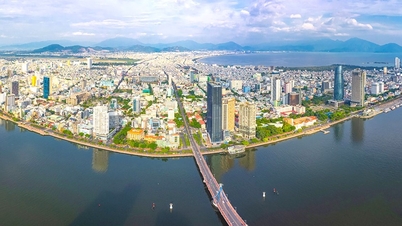



















Comment (0)